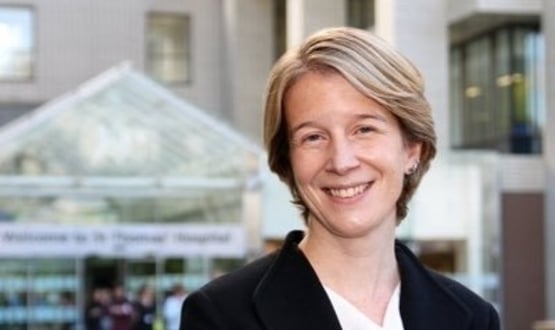Osborne ‘finds £2 billion for NHS’
- 1 December 2014

Chancellor George Osborne is due to back the ‘Five Year Forward View’ to reform the NHS in his autumn statement this week.
According to reports in a number of Sunday newspapers, Osborne will announce an additional £2 billion of funding for the health service next year, and present it as a down payment on change.
NHS England’s chief executive, Simon Stevens, launched his Five Year Forward View in October, calling for more action on public health and new models of service delivery to help close a £30 billion gap between funding, costs and demand that could otherwise open up by 2020-21.
The plan had a significant IT component, which has been backed up by the commissioning board’s IT framework, ‘Personalised Health and Care 2020’.
This calls for a mix of national and local investment in IT to support hospital efficiency and integrated working, and new technology – including ‘kitemarked’ apps – to encourage the public to get more involved with their own health and care.
Osborne told the Telegraph that he had held talks with Stevens, and that he would back the reforms. “I endorse this Forward View as a way to deliver a world-class and universal NHS that is sustainable for the long term,” he said.
However, the move clearly has a political component, with trusts already in deficit, a winter crisis in the offing, and opposition parties promising additional funding for the health service.
Shadow health secretary Andy Burnham responded to the pre-coverage of the autumn statement by saying that Labour had a “fully funded” plan to give the NHS £2.5 billion a year over the coalition’s spending plans.
The Financial Times put some additional detail on Osborne’s plans, saying that £200m would be spent on supporting the most financially challenged local areas, and £1.5 billion on the NHS more generally.
Although more than half of the headline £2 billion will come from the Treasury, the FT also reported that around £750m will come from an under-spend by the commissioning system, and “non-frontline” savings.
EHI reported last week that there is concern that this may include some of the money immediately promised for NHS IT through the tech funds.
The announcement of which trusts have won money from the second round, or ‘Integrated Digital Care Fund’, has been repeatedly delayed; with NHS England saying it is “imminent but not confirmed” for almost a month.
Think-tanks have welcomed Osborne’s move. Nigel Edwards, chief executive of the Nuffield Trust, which has joined the King’s Fund in warning of an imminent crisis in the NHS, and the need for pump-priming to support reform, said it would “take the immediate heat off the system.”
However, he pointed out that the National Audit Office has concluded that the NHS as a whole may not finish this year in surplus, so future administrations will not be able to continue to find “new” money for the health service from under-spends.
Meanwhile, the Institute for Fiscal Studies pointed out that if the NHS continued to be protected other areas of public spending would face “staggeringly big” cuts if the government also continued with its deficit reduction plans.




